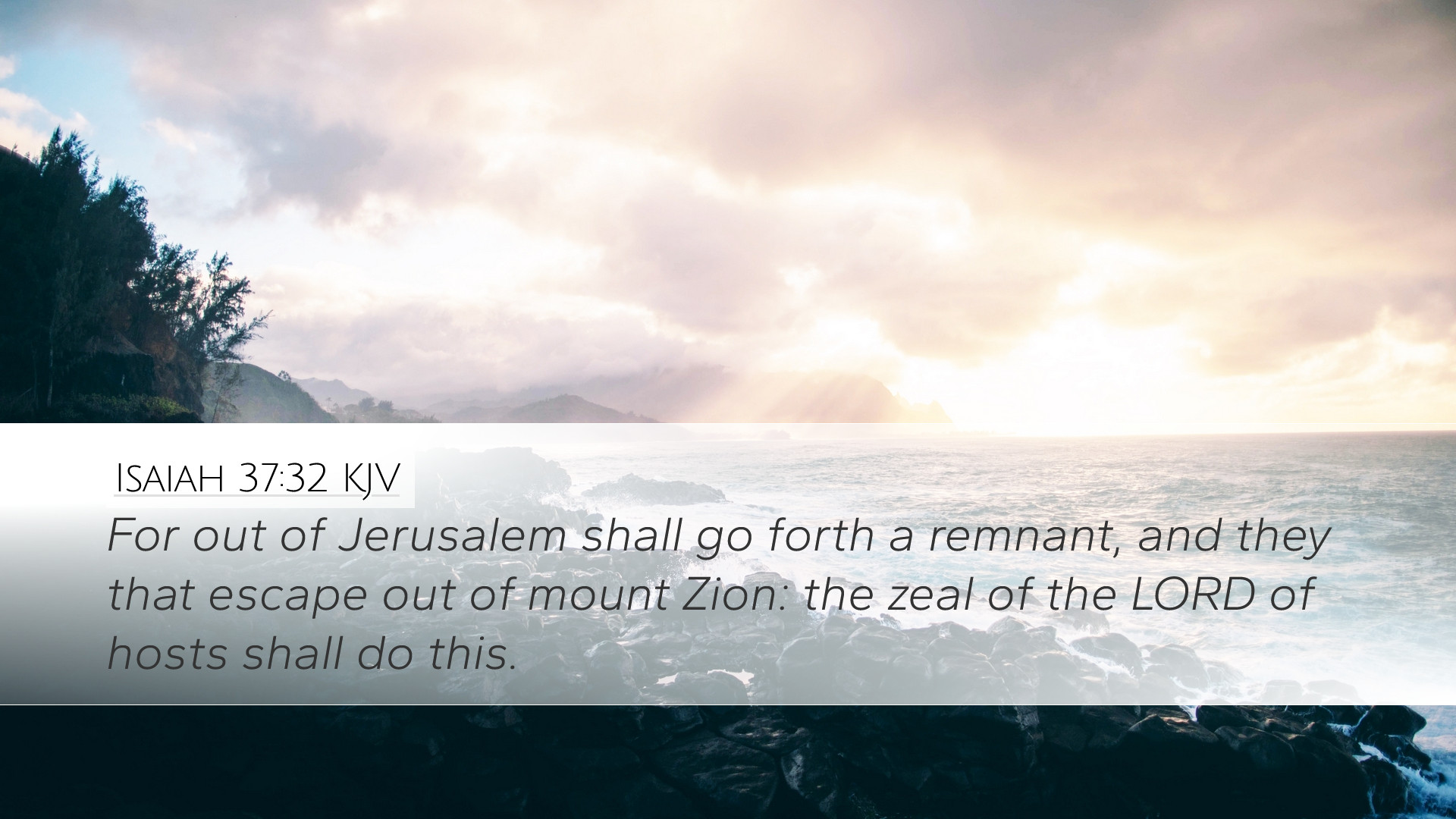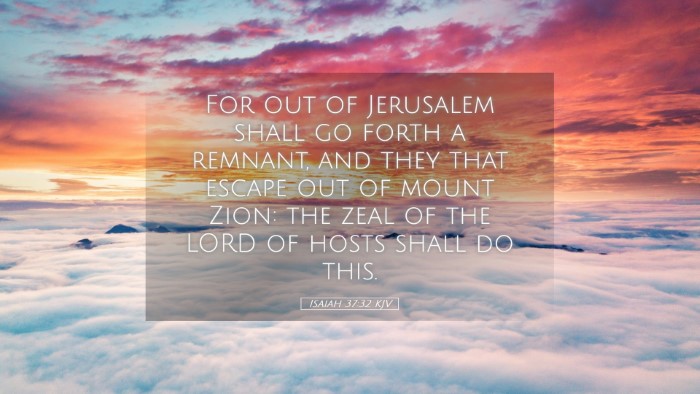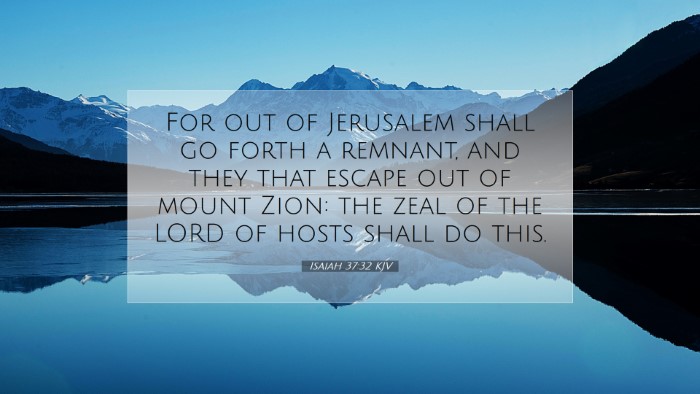Commentary on Isaiah 37:32
Isaiah 37:32 states: "For out of Jerusalem shall go forth a remnant, and they that escape out of mount Zion: the zeal of the Lord of hosts shall do this." This verse is situated within the narrative of Sennacherib's threat to Jerusalem, paralleling themes of divine protection and fidelity.
Contextual Analysis
The historical backdrop of this verse is crucial for understanding its implications. The Assyrian king Sennacherib had besieged Jerusalem with the intention of obliterating the city and its inhabitants. It was a time of immense fear and uncertainty for the people of Judah. God, through Isaiah, reassures them of His sovereign ability to save a remnant.
Theological Implications
This verse encapsulates profound theological truths that resonate through the Scriptures:
- Divine Sovereignty: The phrase "the zeal of the Lord of hosts shall do this" emphasizes God's active role in salvation history. It portrays God as passionately engaged in the affairs of His people.
- Remnant Theology: The concept of a remnant is significant throughout the prophetic literature. God preserves a faithful group even amidst widespread judgment, suggesting hope for restoration.
- Messianic Foreshadowing: The remnant idea anticipates the coming of the Messiah, through whom ultimate salvation would be offered to both Jews and Gentiles.
Commentary Insights
Matthew Henry articulates that this verse highlights God’s promise to safeguard His people. Despite impending judgment, God’s zeal assures that not all will perish; a remnant will emerge to fulfill His purposes. He particularly notes the importance of the remnant as a sign of hope and continuation of God’s covenant.
Albert Barnes asserts the significance of "Jerusalem" and "Mount Zion" as symbols of spiritual steadfastness. He emphasizes that the remnant signifies those who remain faithful amid trials, suggesting that even when circumstances appear dire, God’s plan will prevail through those who trust in Him.
Adam Clarke elaborates on the connection between God's zeal and the safety of His people. Clarke suggests that God's fervent desire to protect His own is not just a passive intent but one characterized by active intervention. According to Clarke, the phrase also serves to remind believers of God's ongoing commitment to His promises.
Expository Reflections
The remnant is more than just a group surviving destruction; it represents faithfulness under pressure. In a contemporary context, this has implications for the church, which may find itself at odds with prevailing cultural currents. The assurance presented in Isaiah serves to embolden believers facing challenges to maintain their faith.
Isaiah 37:32 also affirms God’s unchanging nature. The challenges faced by Judah were formidable; nevertheless, the promise that God’s zeal would drive the preservation of a remnant speaks volumes about His character. Christians today can draw comfort from this promise, knowing that amidst adversities, God's purposes prevail.
Conclusion
Isaiah 37:32 can be understood as a beacon of hope in despondent times. The message is clear: while judgment may loom, God's steadfast love ensures the preservation of a faithful remnant. The historical context combined with theological reflection on the remnant motif compels us to understand the depth of God's engagement with His people. As we reflect on the insights from Henry, Barnes, and Clarke, may we be encouraged to stand firm in faith, trusting in God’s zealous protection over His people.


